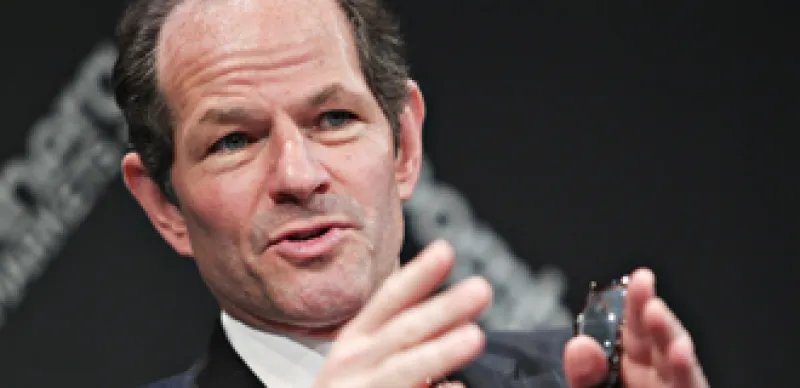
Eliot Spitzer, former governor of New York, speaks during the Bloomberg Markets Global Hedge Fund and Investor Summit in New York, U.S., on Tuesday, May 4, 2010. The summit will debate challenges and opportunities for economic growth in the year ahead. Photographer: Daniel Acker/Bloomberg *** Local Caption *** Eliot Spitzer
Daniel Acker/Bloomberg

